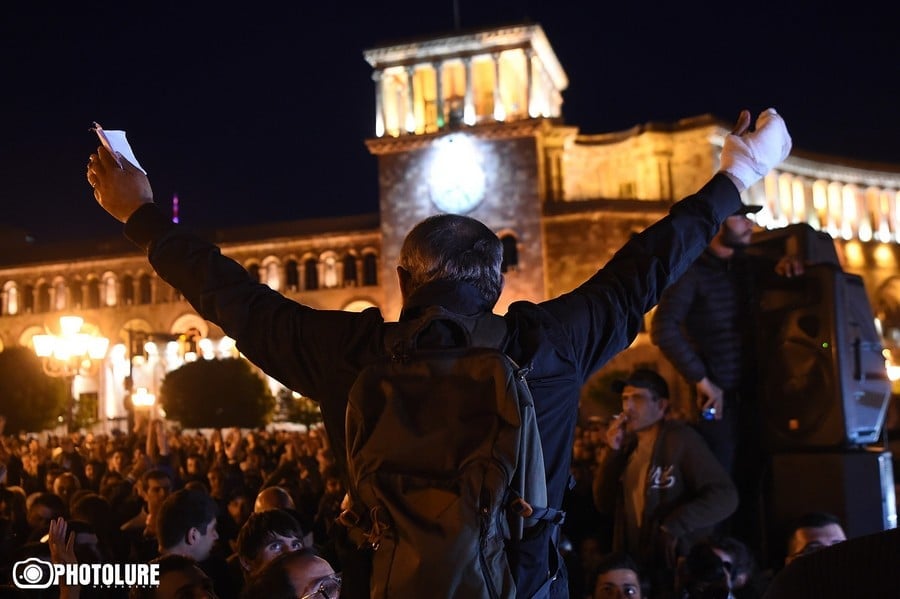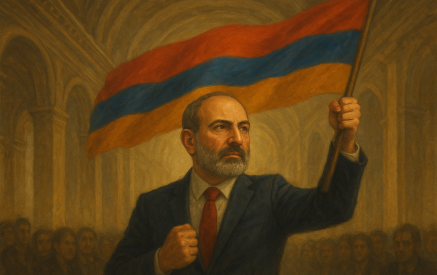How Will the Consequences of the Devastation Caused by Nicolism Be Eliminated?
In the early 2000s, an “Armenian-Turkish Reconciliation Commission” was established, composed of scholars, intellectuals, and experts from both countries. Though the commission lacked official government authority, its members disscused the most difficult issues facing the two states and peoples. In Armenia, official circles regarded this initiative with skepticism, and the ARF Dashnaktsutyun—then part of the ruling coalition—sharply criticized the project.
In political science, this form of diplomacy is known as Track 3 Diplomacy, which differs from Track 1 (official state diplomacy) and Track 2 (people-to-people diplomacy). Track 3 involves dialogue among experts, academics, and civil society leaders. Then—as now—I believe all three diplomatic channels are essential to building normal relations with Turkey. But this does not mean we must nod in agreement to every whim of Aliyev or Erdoğan.
Such reconciliation commissions, however, are not only created between nations in conflict, but also within divided societies. Many countries have adopted such approaches: Spain (following Franco’s death in 1975 and the legacy of the 1936–39 civil war), Germany (after the fall of fascism), and numerous post-socialist and post-Soviet states. One of the most powerful examples is South Africa, where, after apartheid, President Nelson Mandela chose not to seek revenge on the white minority, but instead helped to build a unified “South African” political nation.
Read also
The Third Republic of Armenia, fortunately, has not experienced civil war, fascism, or apartheid. But it faces its own disaster: Nicolism. The damage caused by it will need to be addressed and mitigated in the years following Pashinyan’s eventual departure—perhaps over a span of 5 to 10 years.
Nicolism originated iin 2008 within the Armenian National Congress (not to be confused with the ANC party founded in 2013) and developed as an opposition Civil Contract Party . Initially, it was not especially dangerous. But since 2018, when individuals with this mindset came to power, it has become deeply divisive.
What defines Nicolism? It is the belief in a binary society: on one side, a “people” that unconditionally supports Pashinyan; on the other, “former looters,” “slaves of Russia,” and the majority of the people of Artsakh (whom the government has also tried to divide by creating a pro-Nikol faction). According to Nicolism, the goal of the “true people” is to destroy the “looters” and “slaves,” after which Armenia will achieve true sovereignty and prosperity.
In this way, Nicolism carries troubling features reminiscent of both fascism and apartheid. These traits are evident not only in government propaganda but also in the conduct of law enforcement, particularly in the choreographed PR stunts about “returning looted property to the people.”
The primary instrument of Nicolism is blackmail—a long-standing political tool, to be sure—but in this case, it is petty, vindictive, and accompanied by paranoid and psychopathic tendencies.
Yet perhaps the most dangerous outcome of Nicolism is the rise of anti-Nicolism, which often mirrors its counterpart. For instance, labeling all government supporters as either “zombies” or “sellouts” is just as simplistic and divisive. This cycle of mutual contempt and polarization will likely persist even after Pashinyan leaves office, unless deliberate and effective reconciliation efforts are made.
This raises the key question: Who can lead Armenian-Armenian reconciliation?
Clearly, state diplomacy is not suitable, and people-to-people diplomacy—Track 2—is equally unfit, since it is “the people” who are now at odds. What remains is Track 3 diplomacy: a group of individuals without personal political stakes, who may or may not sympathize with any party, but who value social cohesion—the foundation of any functional state—above all.
Perhaps now is the time to consider forming an Armenian-Armenian Reconciliation Commission—not just to heal our political rifts, but to preserve our collective future.
Aram ABRAHAMYAN



























































